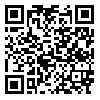BibTeX | RIS | EndNote | Medlars | ProCite | Reference Manager | RefWorks
Send citation to:
URL: http://erj.khu.ac.ir/article-1-808-en.html

 , Fahimeh Keshavarzi
, Fahimeh Keshavarzi 
 , Reza Naseri Jahromi *1
, Reza Naseri Jahromi *1 
 , Rahil Naseri Jahromi
, Rahil Naseri Jahromi 
 , Zahra Hesampoor
, Zahra Hesampoor 
 , Fatemeh Mirghafari
, Fatemeh Mirghafari 
 , Shima Ebrahimi
, Shima Ebrahimi 

Following the outbreak of the coronavirus, the closure of schools and the need to continued education in the school coerces, teachers were forced to provide training on social networks. The main purpose of the present study was to understand the lived experience of parents of first course of elementary school students in the challenges of virtual education in social networks due to the Outbreak of coronavirus, which was implemented using phenomenological methods. The data collection method was to use a semi-structured interview questionnaire. Accordingly, with a targeted sampling approach and standard method, parents whose children have used virtual education on social media for at least a month were selected, and 16 people were finally interviewed based on theoretical saturation.
Interview analysis was performed using a cleavage model and thematic analysis method. After extracting and categorizing the topic, the advantages and disadvantages of virtual education in social networks in five educational categories (advantages: preventing academic backwardness and creating opportunities for creativity; Disadvantages: unwillingness to complete class assignments and reduction of adherence to class discipline regulations), Social (advantages: student freedom of action and greater parental supervision; Disadvantages: Elimination of group activity and laziness and distraction of students), cultural (advantages: entering virtual education into the education system and creating new experiences; Disadvantages: eliminating the charisma of teacher presence and fatigue and boredom of some parents), Economic (advantages : reducing travel costs and saving travel time; disadvantages: time for additional training and the cost of providing the necessary hardware) and technical (improving media literacy of parents as good; disadvantages: lack of visual appeal of videos and Lack of mastery of information technology ) were classified. In addition to the disadvantages mentioned by parents, it is necessary to design a coherent and effective infrastructure for providing virtual educationReceived: 2020/04/20 | Revised: 2020/12/30 | Accepted: 2020/09/12 | ePublished: 2020/09/12
| Rights and permissions | |
 |
This work is licensed under a Creative Commons Attribution-NonCommercial 4.0 International License. |




